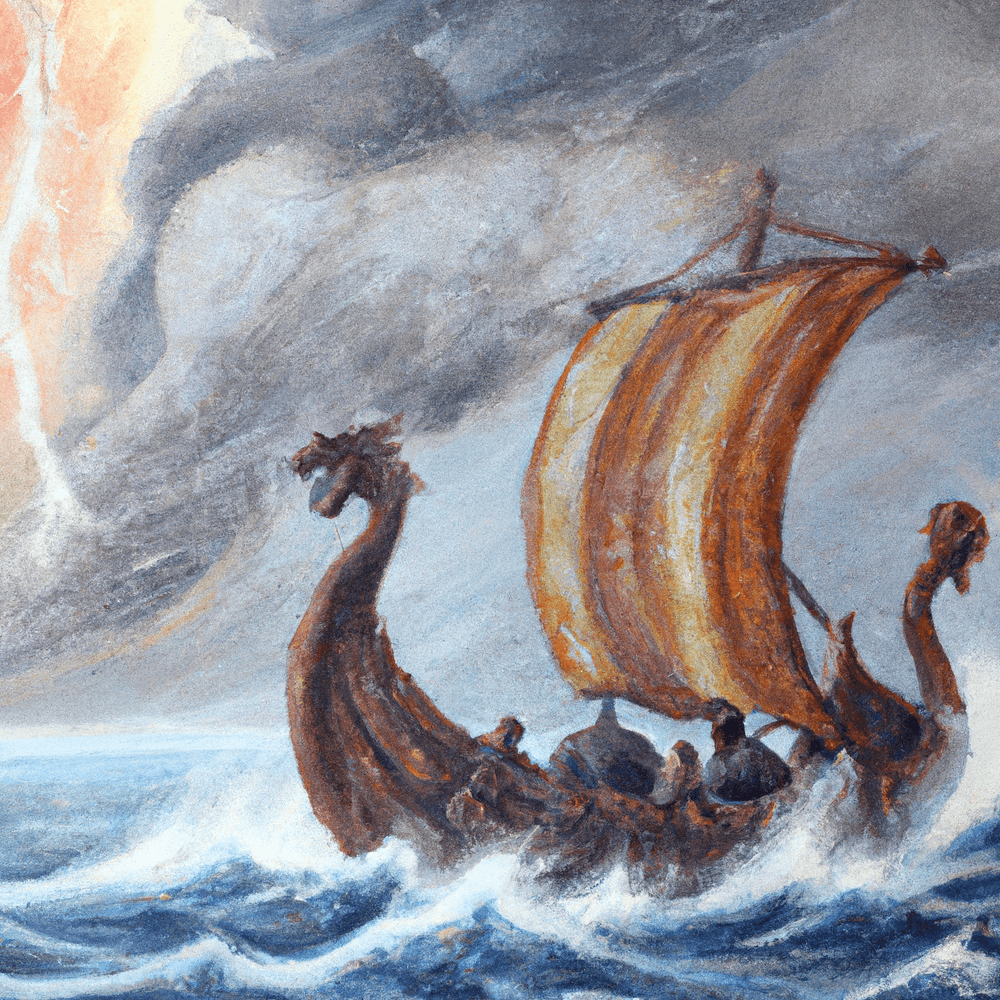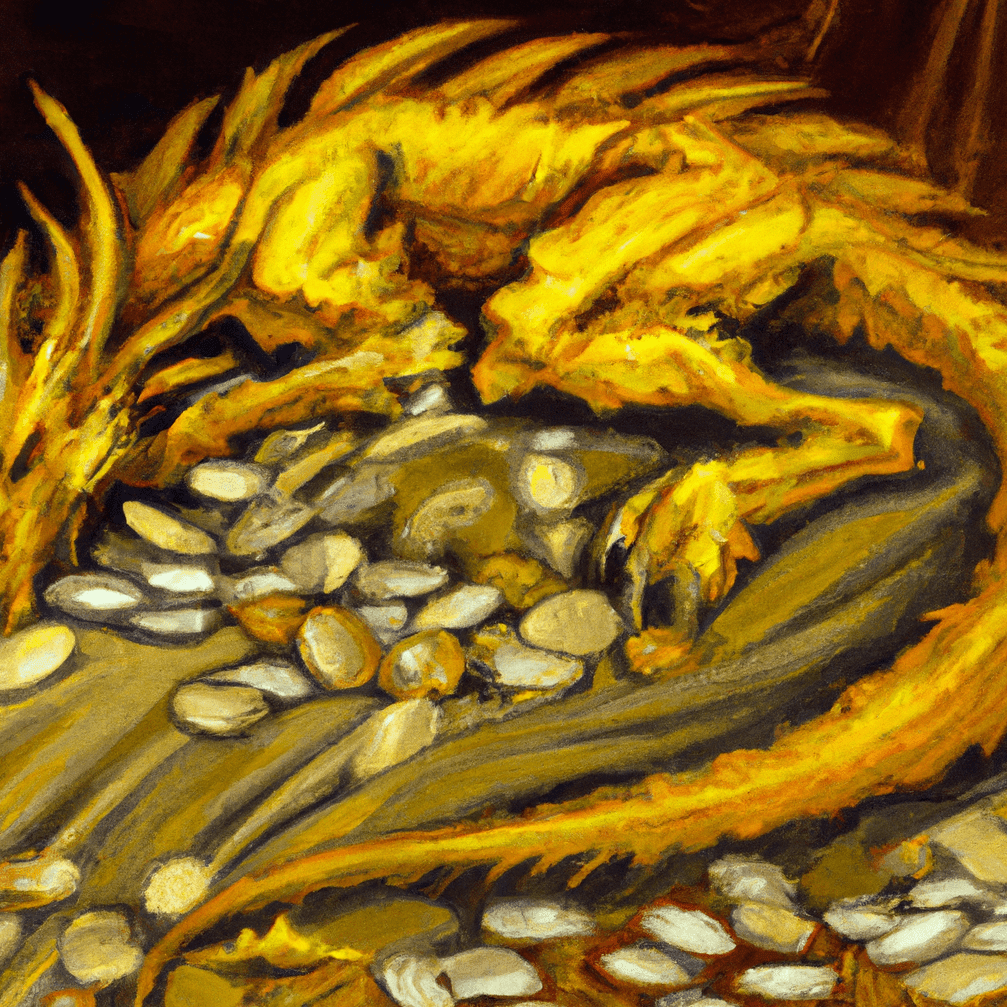Valhalla: The Mythical Hall of Fallen Norse Heroes
Valhalla, the legendary hall of fallen warriors in Norse mythology, has captured the imaginations of people around the world for centuries. A realm where brave warriors are welcomed after death, Valhalla is a fascinating aspect of Norse mythology that offers insights into the ancient Norse worldview, values, and beliefs. In this blog post, we will delve into the captivating world of Valhalla, exploring its origins, significance, and enduring cultural impact.

The Origins of Valhalla
Valhalla, known as "Valhöll" in Old Norse, is a part of Norse mythology, which was the belief system of the Vikings and other ancient Germanic peoples. This mythological concept is primarily found in the Poetic Edda and Prose Edda, two collections of Old Norse literature dating back to the 13th century. It is important to note that Norse mythology was not a homogeneous belief system, as it evolved over time and across various regions.
Valhalla was conceived as a great hall located in Asgard, the realm of the gods, presided over by Odin, the chief god of the Norse pantheon. It was a place where the souls of slain warriors, known as Einherjar, would be taken after their death in battle.
The Significance of Valhalla
Valhalla served as a symbol of honor, courage, and the warrior's code in Norse society. For the Vikings, warfare was an integral part of their lives, and they held warriors in high esteem. The idea of a glorious afterlife in Valhalla motivated many warriors to fight valiantly on the battlefield, as they believed that dying in battle was the surest path to gaining entrance to this illustrious hall.
Warriors who were chosen by Odin to reside in Valhalla were said to engage in feasting, combat, and other forms of martial training during the day. However, their wounds would magically heal each night, ensuring they were ready for battle again the next day. This cyclical existence highlighted the Norse concept of valor and the everlasting struggle for honor and glory.
Journey to Valhalla
The journey from the mortal realm to Valhalla was not an ordinary passage. The Valkyries were believed to carry the souls of the fallen on horseback or their wings, transcending the boundary between life and death. This journey was marked by supernatural elements, such as the shimmering of weapons and armor and the howling of winds. The Valkyries' guidance ensured that the fallen warriors reached Valhalla, where they would be welcomed by Odin himself.
In Valhalla, the Einherjar would continue their existence by engaging in glorious battles during the day and feasting in Odin's great hall by night. This cyclical existence of combat and camaraderie was thought to prepare the warriors for the final battle of Ragnarök, the apocalyptic clash that would signal the end of the world and the rebirth of a new order.

The Role of the Valkyries
Valkyries, whose name is derived from Old Norse words meaning "chooser of the slain," were believed to serve Odin, the Allfather and chief god of the Norse pantheon. These ethereal maidens were tasked with the solemn duty of scouring battlefields to select those warriors who demonstrated exceptional valor, courage, and skill in combat. Once chosen, these fallen heroes, the Einherjar, would be escorted by the Valkyries to their eternal reward in Valhalla.
The Valkyries were not only associated with the act of choosing the fallen, but they were also seen as protectors of warriors in battle. It was believed that their presence on the battlefield inspired and shielded warriors, infusing them with the strength and determination needed to face their enemies with unwavering resolve.
Cultural Impact and Legacy
The concept of Valhalla has left an indelible mark on popular culture, inspiring numerous literary works, artworks, films, and even video games. The concept of a warrior's paradise has resonated with audiences across time, as it taps into universal themes of heroism, sacrifice, and the pursuit of eternal glory.
In conclusion, Valhalla, the mythical hall of Norse warriors, continues to captivate and intrigue people worldwide. Its origins in Norse mythology, as well as its cultural impact on literature, art, and entertainment, highlight its enduring relevance. As we explore the stories of heroic warriors seeking glory in battle, we gain a deeper appreciation for the values and beliefs that shaped the ancient Norse civilization. Valhalla stands as a testament to humanity's fascination with the afterlife, heroism, and the eternal quest for honor.


